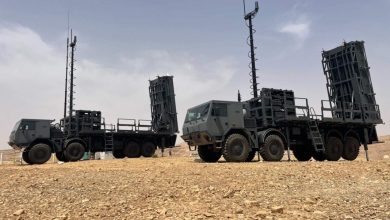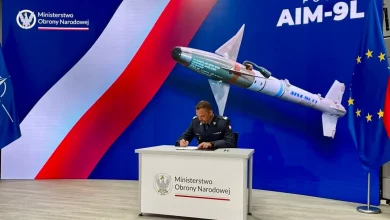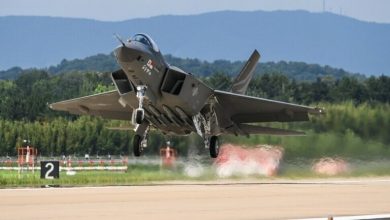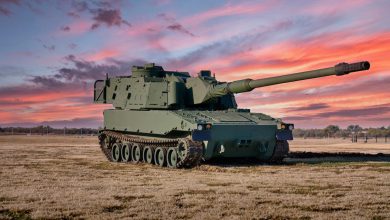Russia holds missile drills in Baltic Sea
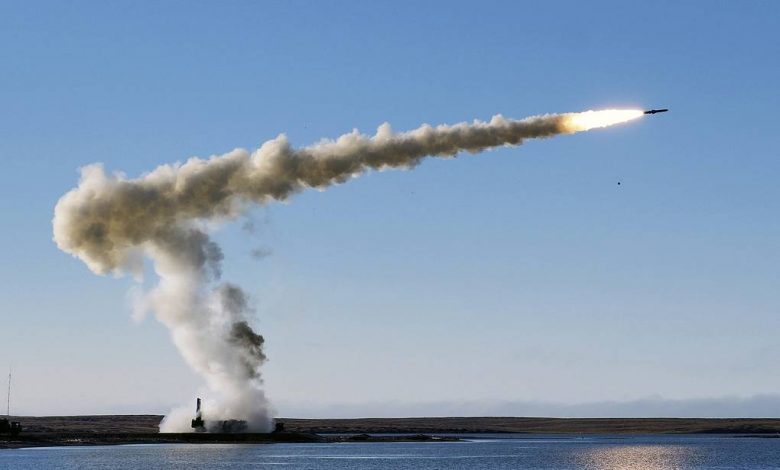
Russia has conducted an anti-ship missile exercise in the Baltic Sea amid escalating tensions with NATO member Lithuania after the country blocked the transit of goods to the Russian exclave of Kaliningrad.
The footage reportedly shows a Russian warship in the Baltic Sea performing a military exercise.
The vessel can be seen launching an antiship missile at what appears to be a mock target, with a camera mounted on board said target showing the missile hitting it with pinpoint accuracy.
The Russian Ministry of Defence (MoD) said in a statement on Monday, 20th June: “The crew of the Soobrazitelny corvette, as part of an exercise of the Baltic Fleet, launched a missile attack on a sea target imitating a warship of a mock enemy.
“Rocket firing was carried out using the main strike weapon of the corvette – the Uran anti-ship missile system. In addition, the crew of the corvette worked out an air defense exercise at sea using the A-190 artillery system.
“After completing the fire mission, the crew of the ship conducted a series of shipboard exercises – on electronic warfare, damage control, anti-sabotage defense, organising interaction and communications between ships providing missile firing.”
Lithuania announced on Friday 17th June the suspension of the transit of goods that have fallen under EU sanctions through its territory to the Russian exclave of Kaliningrad.
Kaliningrad is a Russian exclave that borders Poland and Lithuania that was captured from Nazi Germany in 1945, towards the end of World War II. Goods had until now primarily arrived there from Russia via rail, transiting through Lithuania.
The Russian Foreign Ministry reacted to the announcement of the suspension of the transit of goods by summoning the Lithuanian Charge d’Affaires, Virginia Umbrasene, demanding that the restrictions be lifted.
Russia has said that it “reserves the right to act to protect its national interests”, while the Governor of the Kaliningrad Oblast region, Anton Alikhanov, has announced plans for cargo vessels to begin ferrying goods between St Petersburg and the exclave.
The head of the Ukrainian President’s Office Andriy Yermak said on the evening of Monday, 20th June: “The Kremlin’s attempts to threaten Lithuania are a challenge for the EU and NATO.
“Now it is important to maintain a stable position and make no concessions to Russia on sanctions and restrictions on transit of goods from Russia to Kaliningrad. Any concession will be perceived by Russia as a weakness.”
And the EU foreign policy chief, Josep Borrell, said at a press conference in Brussels that Lithuania is merely applying the EU’s sanctions and is not taking any unilateral measures.
Russia invaded Ukraine on 24th February in what the Kremlin is calling a “special military operation” to “liberate the Donbass”. Today marks the 118th day of the invasion.
The General Staff of the Armed Forces of Ukraine reported that between 24th February and 21st June, Russia had lost about 34,100 personnel, 1,496 tanks, 3,606 armoured combat vehicles, 752 artillery units, 239 multiple launch rocket systems, 98 air defence systems, 216 warplanes, 181 helicopters, 611 drones, 137 cruise missiles, 14 warships, 2,537 motor vehicles and fuel tankers, and 59 units of special equipment.
The new head of the British Army, Gen Sir Patrick Sanders, has told British forces that they need to be ready to face Russia on the battlefield and said the British Army now needs to be capable of defeating Russia.
Ukrainian President Volodymyr Zelenskyy visited Ukraine’s southern frontline as Ukrainian forces mount a counter attack in the region to push back Russian troops.
NATO Secretary-General Jens Stoltenberg said that the war in Ukraine could last years, adding that while the costs were high, the cost of allowing Russia to achieve its military goals would be even greater.
United States President Joe Biden has promised Kyiv another USD 1 billion in security assistance and weapons. And US General Mark Milley says Russia has lost around 20 to 30 per cent of its armoured force during the ongoing invasion.
Former Russian president and staunch Vladimir Putin ally Dmitry Medvedev has derided French, German and Italian leaders visiting the Ukrainian capital Kyiv as “fans of frogs, liverwurst and spaghetti”.
French President Emmanuel Macron, German Chancellor Olaf Scholz and Italian Prime Minister Mario Draghi held talks in the Ukrainian capital Kyiv with President Zelenskyy on 16th June.
President Zelenskyy said that a “historic week” has begun as Kyiv awaits a decision from Brussels regarding its EU candidate status.
The European Parliament adopted a resolution recommending that the European Union grant Ukraine the status of candidate country for EU membership. Some 438 MEPs voted in favour of the resolution, with 65 voting against and 94 abstaining.
Independent Russian journalist Dmitry Muratov has auctioned off his Nobel Peace Prize medal for USD 103.5 million, with all the proceeds going to help Ukrainian refugees.
Muratov, 60, is the editor-in-chief of Russian independent newspaper Novaya Gazeta, which he co-founded in 1993. The paper has regularly defied numerous threats and covered themes that make the Kremlin uneasy.
Novaya Gazeta has reported on Russian government corruption, human rights violations and police violence as well as published articles that are critical of Russian President Vladimir Putin.
Muratov has been a vocal advocate for the freedom of the press and argued that it needs to remain independent from state influence.


